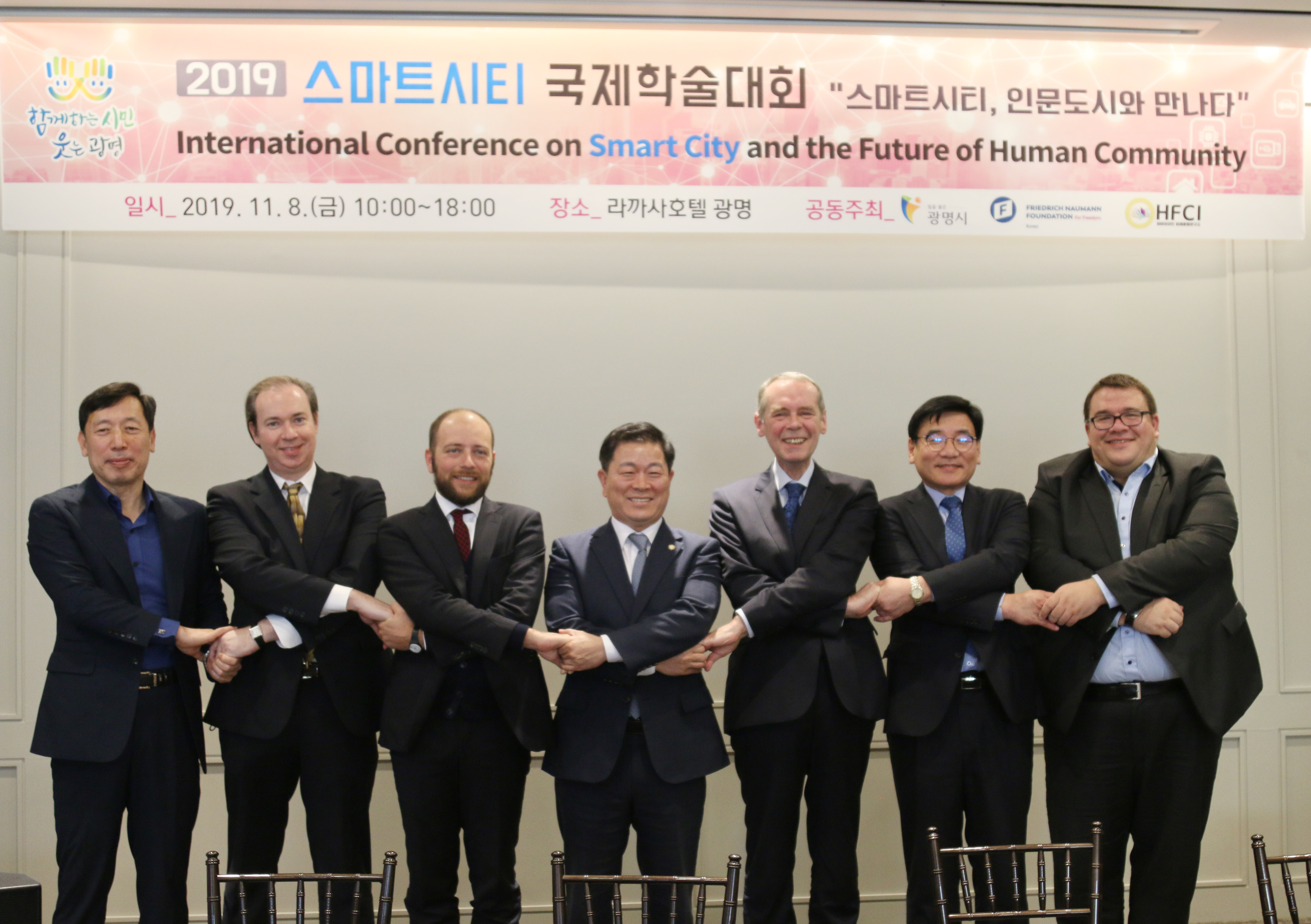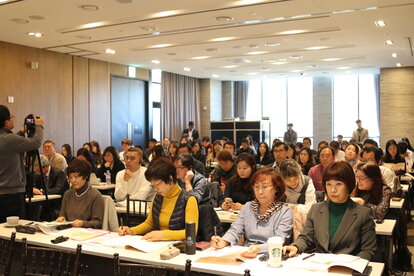Smart Cities
Smart City and the Future of Human Community

In order to address the challenges and problems, induced by rapid urbanization and urban development, of future urban community, cities aspire to be smart cities. How and to what extent will our way of life change and how can we participate in shaping this transformation at present?
On November 8th, the Friedrich Naumann Foundation for Freedom organized the international conference on “Smart City and the Future of Human Community” with the Hybrid Future Culture Institute, at Sungkyunkwan University, and Gwangmyeong City.
The welcoming remarks by Seung-won Park, Mayor of Gwangmyeong City, was followed by a keynote speech, presented by Kong-kwan Lee, Director of Hybrid Future Culture Institute. He theorized, that intellectual citizens, i.e. people supporting democratic systems with a sense of duty and responsibility, rather than intelligent people are the driver of smart city transformation.

Christian Geiger from Switzerland gave a presentation about the “New Role of Citizens in Smart City and Digital Democracy”, giving an overview of the current trends of smart city conceptualization and implementation in Switzerland and in Germany.
Thereafter Carlo Capra from Assolombarda introduced the framework of smart city, he pointed out the correlation between citizen participation in urban development and complexity of the development and implementation process. Unexpectedly, the more citizens are involved in decision making processes, the less complex the process is.
In the afternoon, a special keynote speech was held, addressing the global comparisons and trends of increasing ICT access. Afterwards, the smart city plan reflecting local characteristics of Gwangmyeong City was presented, by the Smart City Team of Gwangmyeong City. Then, researchers of the Hybrid Future Culture Institute argued, that cities aspiring to be smart cities need to embrace humanities to enable spaces of human living and engender connection between humans.